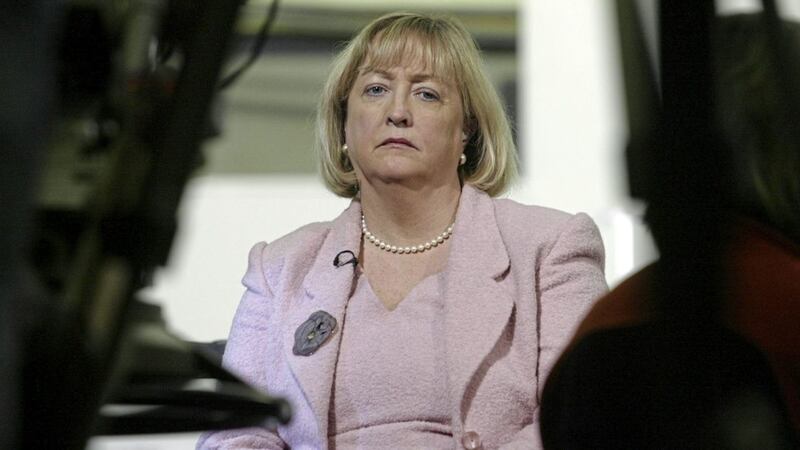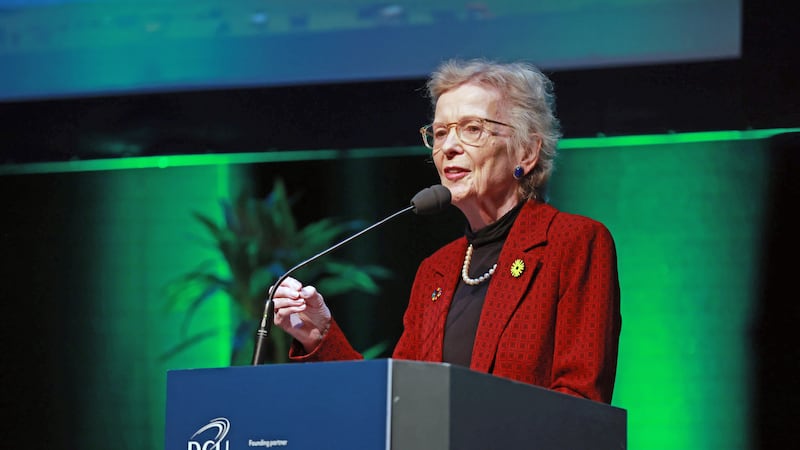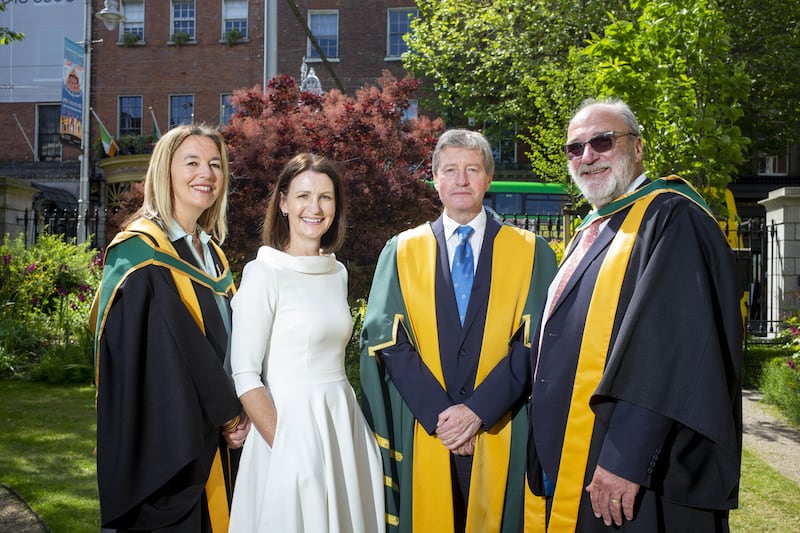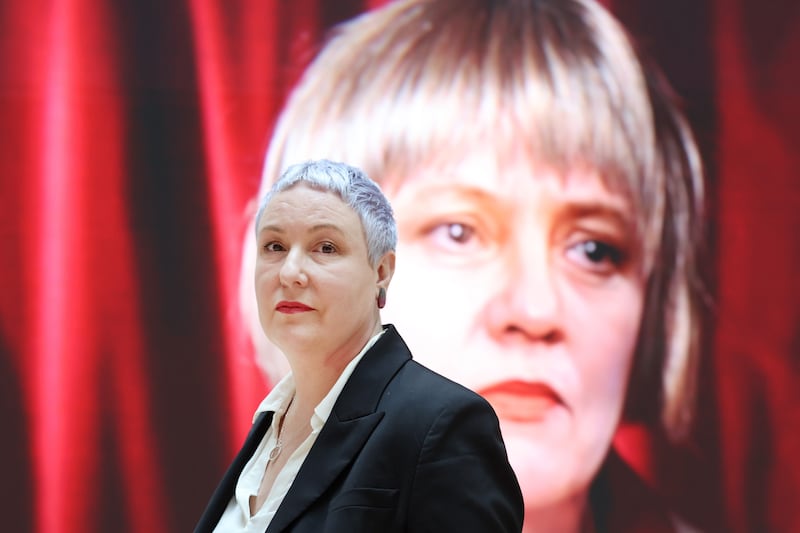Monica McWilliams is an academic at Ulster University and former co-founder and leader of the Women's Coalition.
She is in Myanmar, formerly Burma, with Irish development agency Trócaire where she writes about the plight of ethnic minorities in the country.
****************************************
I was in Kachin State, in the northern part of Myanmar, at the invitation of Trócaire engaging in a capacity-building workshop as part of the Durable Peace Programme funded by the European Union.
The Kachin conflict is one of multiple conflicts collectively referred to as the internal conflict in Myanmar.
The women peace-builders in our workshop, like participants in the Rebirth Centre in Myitkyina, had come from all over Kachin State crossing many military checkpoints to get there.
The room was buzzing with service providers taking part in a 12-step AA programme facilitated by ex-drug users and recovering alcoholics. It was the last month of the monsoon with most had crossed mud-drenched roads to get there.
The women in the peace-building workshop taking place nearby had also come from military-controlled areas as well as Kachin controlled areas.
Some had travelled long distances from near the Himalayas whilst others had traversed difficult terrain adjacent to China.
The women spoke of the problems with sex-trafficking and their attempts to find and resettle women taken into nearby China.
Others spoke of Kachin's mining areas where trafficking is also occurring.
The Burmese military profit from these mines, but the Kachin armed groups demand ownership of their own natural resources.
Locals face land-grabbing with the on-going battle between the military and armed groups resulting in landmines, endangering lives and forcing villagers to seek safety elsewhere.
Another clash was starkly in front of us when we visited Myitsone, the site of a new Chinese dam to provide electricity put on hold after hundreds were forcibly evicted from the area.
Concerns about earthquakes and flooding leading to the region becoming submerged should be foremost in the government’s decisions about this dam.
As the leader of the largest political party, the National League for Democracy, Aung San Suu Kyi will have to decide about the dam and other major issues.
Following the transition in Myanmar, elections in 2015 meant she has become a leading member of the government. The Kachins, however, are sceptical her new role will help.
They want reassurance about how power is redistributed - and not electric power.
The big question for Kachin State, as with other conflicted states, is how will the move from military rule to a genuine democracy enable a more inclusive peace process to take place.
The main ethnic armed groups in Kachin are not part of the National Ceasefire Agreement as they question the conditions imposed and the government’s intentions.
They recall previous experiences when ceasefires were breached so they are cautious about entering the current process.
The armed groups agree that all sides will eventually have to reach a settlement - one that is both inclusive and comprehensive. And that is where Northern Ireland comes in.
They came to Belfast last year and engaged with political parties, former combatants and community activists.
They have listened to those involved in making Northern Ireland’s institutions more representative, transparent and accountable.
Given the absence of an independent judicial and criminal justice system, they are interested in the devolution of power.
The world’s attention is now on the predominantly Muslim Rakhine State where a major crisis is unfolding with what some consider constitutes ethnic cleansing of Rohingyas.
There has been much less focus on other ethnic minorities in Kachin State who have been raising issues of discrimination and human rights violations for many years.
There are 163 IDP ( internally displaced person) camps inside Kachin with over 100,000 inhabitants.
To refer to the camps as housing people is a mistake - there were eight families to one makeshift hut with cooking and cleaning taking place outside.
There were no schools or health clinics but the Catholic and Baptist churches as well as Trócaire continue to do the challenging work of providing shelter.
In the midst of such poverty, the miracle is that Trócaire is running a gender-based violence (GBV) awareness programme with its local partner organization Community Health and Development.
Trocaire's three-year programme is applying methods used previously in Uganda. But it needs the support of the wider system.
Back to the training that Saturday, on Sister Mary Dillon’s birthday - a Co Clare Colomban nun who runs the Hope Centre, a hospital for HIV positive patients in need of medical care.
Sr Ashwina from the Philippines organises the recovery programme for addicts with an Irish Columban priest, whilst Sr Enda from Korea runs a centre for disabled youth.
They are remarkable women, bringing expertise and enthusiasm, irrespective of the lack of resources.
The lesson for peace building can be found here.
It starts with finding the humanity in the other person especially when no-one else wants to.
Using a human rights based approach, they have become powerful advocates for the most vulnerable in this region.
As I left Myanmar after 10 days, my bag was full with gifts presented, but also the extensive knowledge gained about this country.
Time will tell if Aung San Suu Kyi, one of the most famous Nobel Peace laureates, is prepared to make the changes demanded in various parts of the country.
The world is watching, but will the international community turn away once the pictures of the fleeing Rohingyas is overtaken by a crisis elsewhere.
The people in the camp I visited, the women I engaged with during the training, the participants in the Rebirth and Hope Centres, the mobilizers from the gender-based violence programme and the ethnic minority groups I met have also watched and waited in Kachin for something to change.
They know what it's like to endure suffering in silence.
Trócaire and other aid agencies, with local partners, are doing what they can to help but they cannot do this alone.
Kachin, as well as Rackhine, needs our support if its precarious journey towards peace is to see its way through to fruition.








